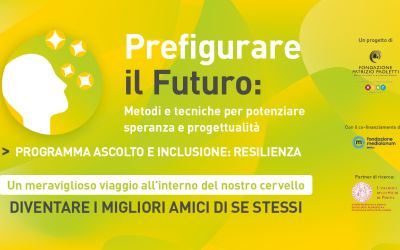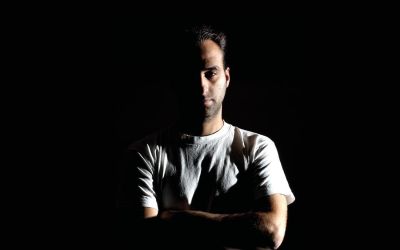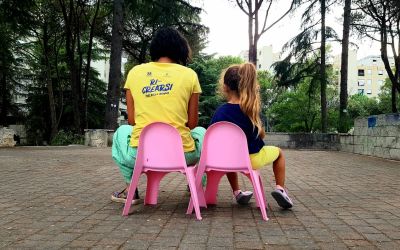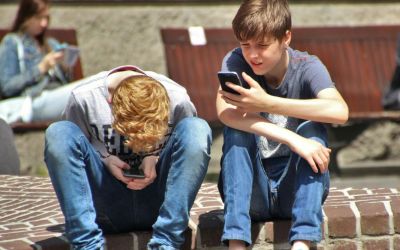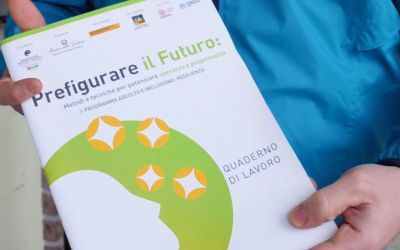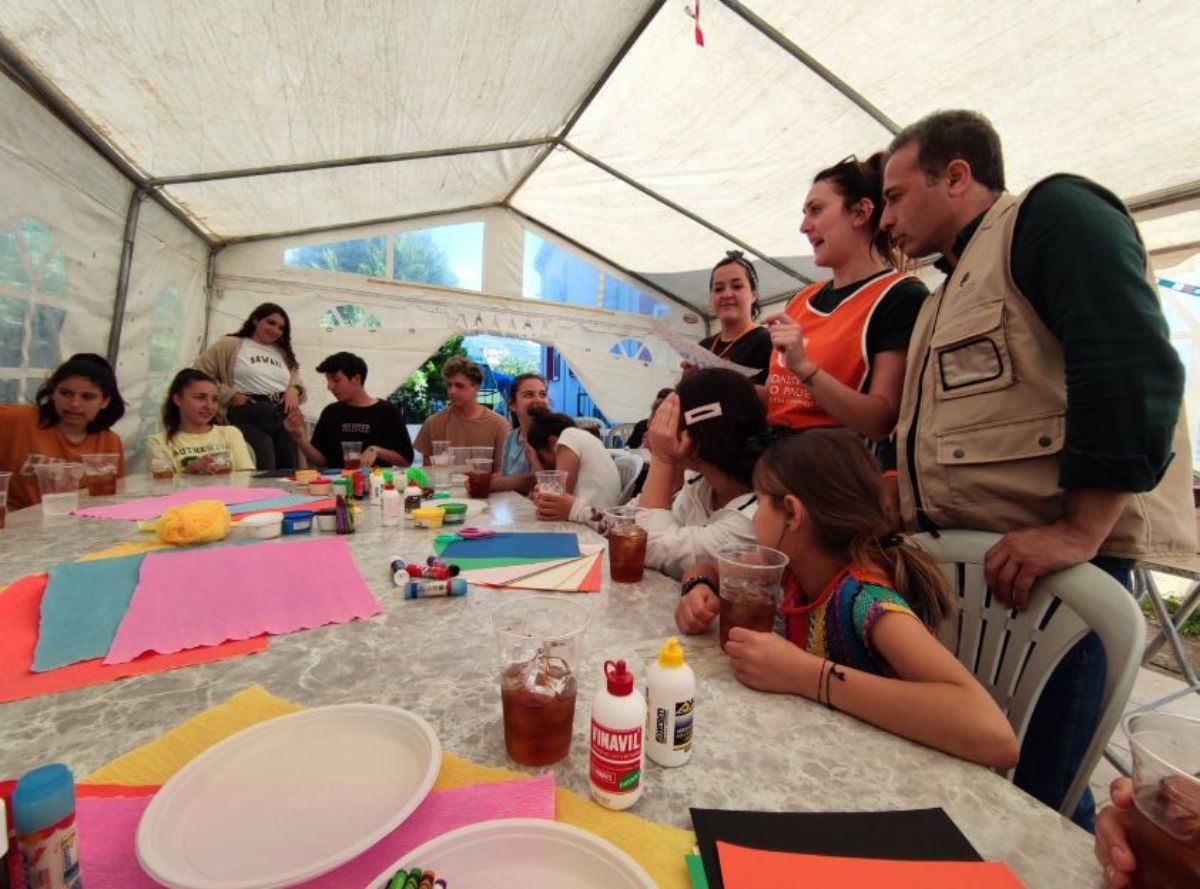
Turchia-Siria: “So che posso aiutarti”
La sfida educativa dopo il terremoto
La Fondazione Patrizio Paoletti ha diffuso, nelle settimane successive alla catastrofe del terremoto in Turchia, “10 passi per affrontare gli effetti del terremoto”, una guida dedicata a genitori e a tutti coloro che hanno relazioni significative con i bambini. La guida, ideata dal team di ricerca psico-pedagogico della Fondazione Patrizio Paoletti, fornisce suggerimenti su come comunicare e comportarsi con bambini per affrontare il terremoto. Ed è stata diffusa per sostenere la popolazione turca colpita dal sisma, in collaborazione con il centro di ricerca SODIGEM, della Anadolu University (Eskişehir, Turchia).
Sono stati prodotti e divulgati dei Podcast di approfondimento su ciascun passo del vademecum che hanno accompagnato i genitori e caregivers all’utilizzo dello strumento. L’obiettivo primario dell’intervento è quello di restituire a ciascun genitore, anche in un momento di grande difficoltà, la consapevolezza di poter avere un ruolo protettivo dagli effetti del trauma, determinante, nei confronti dei propri bambini a vantaggio della loro salute psico-fisica.
Gli interventi della Fondazione Patrizio Paoletti a favore delle popolazioni colpite da disastri naturali sono attivi dal 2009. Hanno sostenute gli abitanti delle zone colpite dai terremoti che, nel corso degli anni, hanno colpito diverse regioni sia in Italia che all’estero (Haiti nel 2010; diverse regioni italiane nel 2009, nel 2012 e nel 2016). L’équipe pedagogica della Fondazione ha inoltre sviluppato il progetto “Prefigurare il Futuro” che ha accompagnato migliaia di genitori, insegnanti e adulti a trasformare le fragilità emerse dopo il terremoto in risorse.
L’equipe psicopedagogica e di ricerca della FPP commenta le prime testimonianze dei genitori e dei caregiver turchi che hanno usato il vademecum:
Dalle prime testimonianze emerge che la guida “10 passi per affrontare gli effetti del terremoto”, è vissuta dalle persone come una bussola per mantenere speranzaUna definizione psicologica e neuroscientifica La speranza ... Leggi e fiduciaLa fiducia, un'emozione cruciale nel tessuto delle relazioni... Leggi, in questo momento estremamente provante per loro. La guida sta soprattutto incoraggiando le loro convinzioni di essere capaci di gestire efficacemente le sfide legate alla genitorialitàLa genitorialità è un concetto ampio e complesso che si ri... Leggi e alla cura dei bambini. Nonostante il terremoto e gli effetti devastanti che ha avuto nelle loro vite, come la perdita della casa, di beni materiali e affettivi. E in alcuni casi la perdita della loro rete sociale e di sostegno.
Il poter sentire e il poter comunicare ai bambini “So che posso aiutarti”, supporta il genitore, in questo momento critico, a non cadere preda degli effetti di ansiaL'ansia è una risposta emotiva caratterizzata da sentimenti... Leggi e stressCos’è lo stress? Dal punto di vista clinico, lo stress è... Leggi, e assicura ai bambini il sostegno di cui hanno bisogno. I genitori che credono di avere il potere di influenzare i comportamenti e le esperienze dei figli, anche in questo momento, hanno una maggiore capacità di individuare strategie genitoriali efficaci. Creando così interazioni positive.
Nel mettere in campo strategie e interventi che mirano a proteggere e a supportare i bambini, spesso è trascurato l’impatto critico che gli eventi avversi hanno sulla salute psico-fisica in primis dei genitori e dei caregiver. E come questo impatto negativo non garantisca l’elemento primario nella creazione di un ambiente protettivo e di sostegno per i più piccoli, una sana relazione adulto-bambino.
Studi psico-pedagogici rivelano che i genitori che non dispongono di risorse psicosociali e contestuali a cui attingere in situazioni avverse possono non gestire le difficoltà con efficacia e possono così sperimentare un aumento dello stress. Le risposte negative allo stress dei genitori possono aumentare il rischio di risposta disadattive anche nel bambino. Le ricerche in questo campo infatti evidenziano che i figli di genitori che riferiscono alti livelli di stress e di percezione ansiosa o alterata dei propri comportamenti genitoriali di fronte ad avversità, come ad esempio i disastri naturali, hanno maggiori difficoltà a gestire le situazione avverse, anche in futuro.
Allo stesso tempo, il sostegno che il bambino riceve da un adulto che crede in se stesso e nella sua efficacia, crea un senso interiorizzato di sicurezza e fiducia nel bambino. Si tratta di un ingrediente primario che supporta l’autoregolazione emotivaL'autoregolazione emotiva si riferisce alla capacità di ges... Leggi e la capacità di adattamento positivo, nel presente e anche lungo tutto l’arco della vita.
L’esperienza del terremoto, come riportato dalle prime testimonianze, sembra avere un impatto sul senso di efficacia dei genitori. E di conseguenza sulle pratiche educative che hanno messo in campo. Garantire che l’adulto si senta capace e in grado di fronteggiare il momento presente include suggerirgli pratiche educative da applicare. Ma anche dotarlo della capacità di leggere e rispondere ai segnali fisici, comportamentali e ai bisogni emotivi dei bambini.
Riportiamo ora alcune delle testimonianze raccolte, per ascoltare dalla voce dei genitori e dei caregiver, come – anche in un momento tragico come quello che stanno vivendo – sia possibile offrire ai bambini una guida sicura, per tenere accesa in loro la speranza. Per farlo, ci dicono, che avere strumenti informativi e pedagogici, come la guida in 10 passi ideata dalla Fondazione Patrizio Paoletti e diffusa dal centro di ricerca SODIGEM, della Anadolu University, è un aiuto indispensabile, che rafforza la fiducia nelle loro capacità.
“Sappiamo come comunicare con i bambini nel flusso di routine della vita quotidiana, ma dopo un disastro come un terremoto, (…), c’è un grande buio, incertezzaL'incertezza è uno stato emotivo e cognitivo complesso che ... Leggi e vuoto. Questa guida ci è servita come bussola per trovare la strada giusta in quel buio e per valutare noi stessi nei processi di comunicazione”
“Vedo che la guida che ho letto ci capisce e cerca di sostenerci. Siamo felici di questo sostegno psicologico e verbale e sentiamo che siete con noi”
“Anche se abbiamo avuto difficoltà come genitori, educatori, abbiamo comunque applicato alcuni dei suggerimenti della guida. Tuttavia, ci sono molte famiglie che non sanno come gestire questa situazione e questo processo. Quindi penso che sia molto importante diffonderlo molto rapidamente in caso di disastri naturali simili. Se non si riesce a gestire il processo in modo corretto, si può aggiungere un nuovo trauma al trauma legato al disastro. Per il bene dei nostri figli, è molto importante sostenere i genitori, offrire una guida sulle difficoltà e diffonderla ampiamente”.
“Penso che coloro che si occupano di bambini abbiano avuto bisogno di un sostegno supplementare durante il terremoto, perché i genitori che avevano responsabilità nei confronti dei figli hanno avuto difficoltà a riprendersi e quindi non sono riusciti a trovare la forza di prendersi cura dei loro figli dal punto di vista emotivo. Gli effetti fisici delle difficoltà vissute hanno causato alle persone diverse difficoltà. (…) Ho visto che il superamento delle difficoltà quando c’è una comunità ha effetti più positivi sia per i bambini che per gli adulti”
Sii parte del cambiamento. Condividere responsabilmente contenuti è un gesto che significa sostenibilità
